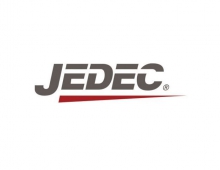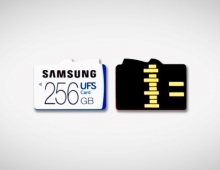
JEDEC to Promote New Mobile Memory Standards in Event Series
Memory technology for mobile devices will be featured at three Mobile Memory Forum events hosted by JEDEC Solid State Technology Association in Shenzhen, China on Monday, June 20; Hsinchu, Taiwan on Wednesday, June 22; and Seoul, Korea on Friday, June 24.
The series will highlight the latest developments and standards for mobile memory from industry leaders throughout the world.
The events will focus on four key technologies with major impact potential for the mobile device market: Universal Flash Storage (UFS), LPDDR3, WideIO and solid state drives.
The JEDEC LPDDR3 standard is being designed to meet the higher bandwidth requirements of next-generation smartphones and tablets. JEDEC LPDDR3 will offer an extension of LPDDR2, in terms of bandwidth, reaching 6.4GBps and allowing 12.8GBps for a dual channel configuration. It will support both Pop and discrete packaging types, allowing versatile usage. The standard will also preserve the power-efficient features and signaling interface of LPDDR2, allowing for fast clock stop/start, low-power self-refresh, smart array management, and un-terminated signal lanes.
The JEDEC WideIO standard is a technology that will meet industry demands for increased levels of integration as well as improved bandwidth, latency, power, weight and form factor; providing the ultimate in performance, energy efficiency and small size for smartphones, tablets, handheld gaming consoles and other high performance mobile devices. WideIO Mobile DRAM Memory uses chip-level three dimensional (3D) stacking with Through Silicon Via (TSV) interconnects and memory chips directly stacked upon a System on a Chip (SoC). WideIO is particularly suited for applications requiring increased memory bandwidth up to 12.8GBps, such as 3D Gaming, HD Video (1080p H264 video, pico projection), simultaneously-running applications, etc.
JEDEC published its next-generation storage system standard, Universal Flash Storage (UFS), JESD220 in February 2011. UFS is designed to be the most advanced specification for both embedded and removable flash memory-based storage in mobile devices such as smart phones and tablet computers. The UFS standard represents a progression of JEDEC standards in this field, and has been specifically tailored for mobile applications and computing systems requiring high performance and low power consumption.
The events in China and Korea are free, and the event in Taiwan is free for JEDEC or TSIA members and NT$500 for non-members. Advance registration is required for all locations: http://www.jedec.org/events-meetings.
The events will focus on four key technologies with major impact potential for the mobile device market: Universal Flash Storage (UFS), LPDDR3, WideIO and solid state drives.
The JEDEC LPDDR3 standard is being designed to meet the higher bandwidth requirements of next-generation smartphones and tablets. JEDEC LPDDR3 will offer an extension of LPDDR2, in terms of bandwidth, reaching 6.4GBps and allowing 12.8GBps for a dual channel configuration. It will support both Pop and discrete packaging types, allowing versatile usage. The standard will also preserve the power-efficient features and signaling interface of LPDDR2, allowing for fast clock stop/start, low-power self-refresh, smart array management, and un-terminated signal lanes.
The JEDEC WideIO standard is a technology that will meet industry demands for increased levels of integration as well as improved bandwidth, latency, power, weight and form factor; providing the ultimate in performance, energy efficiency and small size for smartphones, tablets, handheld gaming consoles and other high performance mobile devices. WideIO Mobile DRAM Memory uses chip-level three dimensional (3D) stacking with Through Silicon Via (TSV) interconnects and memory chips directly stacked upon a System on a Chip (SoC). WideIO is particularly suited for applications requiring increased memory bandwidth up to 12.8GBps, such as 3D Gaming, HD Video (1080p H264 video, pico projection), simultaneously-running applications, etc.
JEDEC published its next-generation storage system standard, Universal Flash Storage (UFS), JESD220 in February 2011. UFS is designed to be the most advanced specification for both embedded and removable flash memory-based storage in mobile devices such as smart phones and tablet computers. The UFS standard represents a progression of JEDEC standards in this field, and has been specifically tailored for mobile applications and computing systems requiring high performance and low power consumption.
The events in China and Korea are free, and the event in Taiwan is free for JEDEC or TSIA members and NT$500 for non-members. Advance registration is required for all locations: http://www.jedec.org/events-meetings.





















